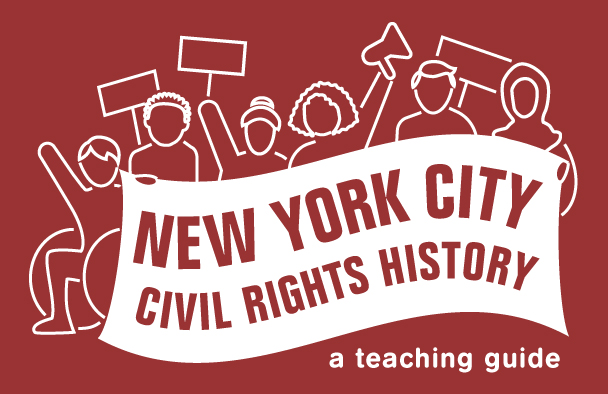Evelina López Antonetty and United Bronx Parents/Padres Unidos del Bronx
Many Puerto Ricans moved to and from the US mainland in the 1920s and 1930s. One of these migrants was Evelina López, who came to East Harlem as a child in 1933.1 As an adult and a mother, Evelina López Antonetty (her married name) became an education advocate. She lived in the South Bronx, where the Puerto Rican population grew dramatically after World War II ended and people came in search of work.2
Read More
Antonetty’s early school experiences in New York City were difficult and left scars that lasted for decades. But they also motivated her to become an activist. In a later interview, she recalled that “The Hispanics from Central America, the Haitains, the Blacks from the South and the Puerto Ricans all have problems with language and customs. They experience rejection like I did. They feel like outsiders!”3
As a child, Evelina López lived in “El Barrio”—East Harlem. The vibrant community provided her with a political education. During the Great Depression, she saw that many in her community were unable to find work, but that they were too ashamed to ask for help in public. She decided to help her neighbors by gathering their food vouchers, collecting their food, and delivering it to them in the privacy of their homes. As a high school student at Wadleigh High School in Harlem, she and three classmates staged a boycott. A student had become ill at school, and there was no nurse available to help. López and her peers took action to draw attention to the lack of adequate medical care.4
Antonetty later had the opportunity to expand her political vision as union worker, where she met Puerto Rican labor leader Jesús Colón. She also learned from her experience as parent. Her first two children entered school in the South Bronx in the late 1940s, while she was home taking care of her youngest child. She increasingly became involved in her daughters’ school. She got to know the needs of other Puerto Rican families in the area and began to organize parents to push for the education their children deserved.
Antonetty’s organizing work led her to found United Bronx Parents (UBP) in 1965. UBP organized and supported Puerto Rican and Black parents in the Bronx in pushing for better education. UBP attacked how racism, ableism, and bias against Spanish-speaking students and families together limited opportunities for Black and Latinx students.
The organization’s early focus was on bilingual education. Many neighborhood youth came from Spanish-speaking families, but the Board of Education failed to provide the education they deserved and needed. Instead, teachers and administrators frequently labeled students as disabled because they spoke Spanish rather than English.
Under Antonetty’s leadership, United Bronx Parents advocated for a range of issues, from childcare, to parent power in school decision-making, to school lunches. Antonetty also became a mentor to a younger generation of activists, including the Young Lords Party, who were fighting for justice for Puerto Ricans in New York and independence for those on the island.5
-
For accounts of Evelina López Antonetty’s life and work, see Adina Back, “‘Parent Power’: Evelina López Antonetty, the United Bronx Parents, and the War on Poverty,” in The War on Poverty: A New Grassroots History, 1964-1980 ed. Annelise Orleck and Lisa Gayle Hazirjian (Athens, GA: University of Georgia Press, 2011). ↩︎
-
On Puerto Rican communities in New York, see Lorrin Thomas, Puerto Rican Citizen: History and Political Identity in Twentieth Century New York City (Chicago: University of Chicago Press, 2010). ↩︎
-
Back, “‘Parent Power,’” 187. ↩︎
-
Thomas, Puerto Rican Citizen, 206-208. ↩︎
-
Johanna Fernández, The Young Lords: A Radical History (Chapel Hill, NC: University of North Carolina Press, 2019), and Matthew Kautz, Christina Martin, and Johanna Fernández, “The Reimaginers: The Young Lords,” accessed April 20, 2020, https://www.youtube.com/watch?v=q4umn9iLsYs. ↩︎
